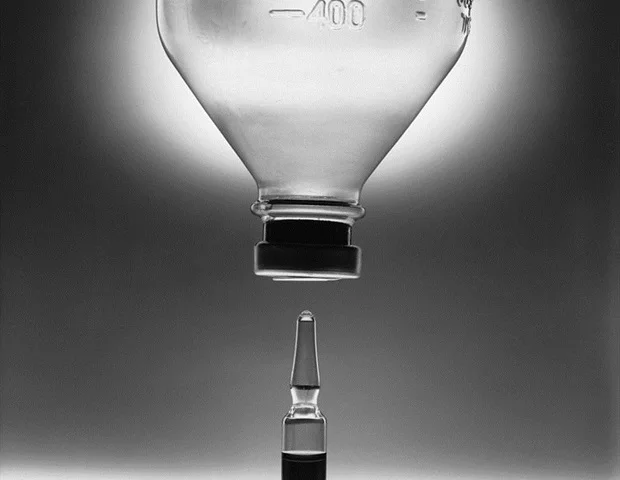Chemotherapy has helped make the most common childhood cancer one of the most curable, but researchers have evidence that the treatment may also prime some patients for relapse. Results published in the journal Blood reported that treatment-induced mutations cause drug resistance in some patients whose acute lymphoblastic leukemia (ALL) returns.
Our study reveals the evolution dynamics of pediatric ALL, which suggest for the first time that chemotherapy treatment, particularly thiopurines, can cause mutations that lead to drug resistance in patients.”
Jinghui Zhang, Ph.D., study co-corresponding author and chair of the St. Jude Children’s Research Hospital Department of Computational Biology
Thiopurines are a class of drugs used in most phases of ALL treatment.
The study involved 103 young ALL patients who relapsed. Most relapsed nine or more months after diagnosis. The analysis revealed that about 20% of these patients had treatment-related mutations at relapse, some associated with drug resistance. “The mutational signatures are specific and therapy-related, as they are only present in the genomes of relapsed ALL patients but not in other pediatric or adult cancer genomes,” Zhang said.
The findings underscore the need for less toxic therapies and precision-medicine approaches, said co-corresponding author Ching-Hon Pui, M.D., chair of the St. Jude Department of Oncology. Candidates in development include immunotherapies such as CAR-T cells and bispecific antibodies.
“This study points to the potential need to individualize therapy when drug resistant mutations emerge in ALL”, said co-corresponding author Jun J. Yang, Ph.D., of the St. Jude Departments of Oncology and Pharmaceutical Sciences. The other co-corresponding author is Bin-Bing Zhou, Ph.D., of Shanghai Children’s Medical Center and National Children’s Medical Center and the Shanghai Jiao Tong University School of Medicine.
Relapse remains leading cause of death
ALL is the most common childhood cancer. With current treatment, more than 90% of pediatric patients become long-term survivors. The prognosis is dismal for patients whose leukemia returns. Relapse accounts for 70 to 80% of ALL patient deaths.
Cause uncertain
While previous studies had identified relapse-specific drug resistance mutations, the origin of those mutations was unclear. Some researchers proposed that ALL relapse was driven by drug-resistant leukemic cells present at diagnosis.
Whole genome sequencing analysis
The children in this study were treated in China. They underwent whole genome sequencing of leukemic cells collected at the diagnosis and relapse as well as normal DNA. The analysis also included targeted deep sequencing of leukemic cells collected regularly during treatment of 16 patients.
Researchers identified relapse-specific acquired mutations in 12 genes involved in drug response, including FPGS, a novel, relapse-related gene. The analysis also revealed two novel mutational patterns or signatures. Researchers showed thiopurines caused one of the new mutational signatures. Additional research showed the mutations lead to multi-drug resistance.
Drug resistance and relapse timeline
The timeline of relapse of patients in this study and the presence of relapse-specific mutations in the 12 genes involved in drug response provided insight into the cause.
Most patients, 55%, relapsed nine to 36 months after diagnosis but before treatment ended. This group had the most relapse-specific mutations in the 12 drug-resistance genes, particularly compared to patients who relapsed earlier. Mathematical modeling, mutational analysis and other evidence indicated that earlier relapse was likely caused by drug-resistant tumor cells present at diagnosis.
Investigators proposed a two-step process to explain later relapse. The model suggested that relapse occurred when partially drug-resistant tumor cells that were present at diagnosis acquired treatment-related mutations. The now drug-resistant cells divide and eventually cause relapse.
“This suggests drug resistance is not a foregone conclusion,” Yang said. “It may be preventable through changes in the dosage or timing of treatment.” Based on the findings, Pui said screening relapsed patients for drug-resistance mutations may be indicated.
Li, B., et al. (2019) Therapy-induced mutations drive the genomic landscape of relapsed acute lymphoblastic leukemia. Blood. doi.org/10.1182/blood.2019002220.
